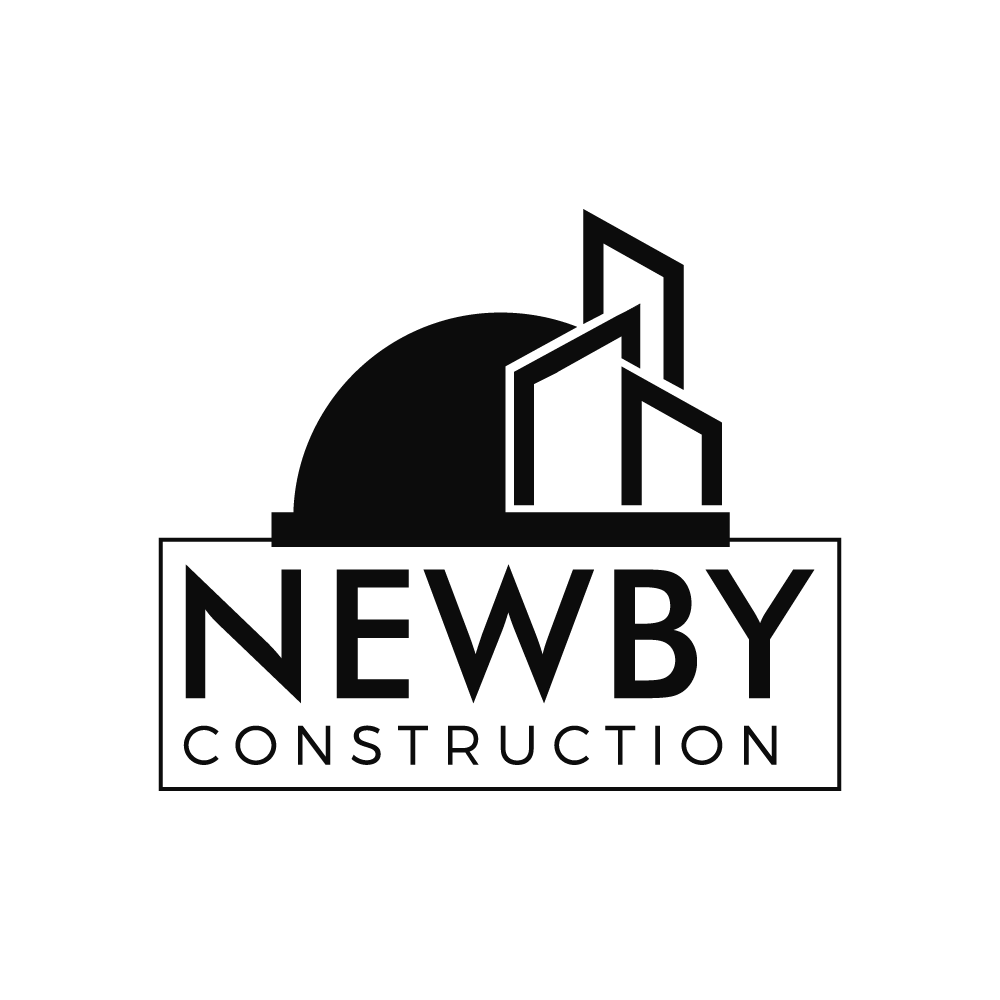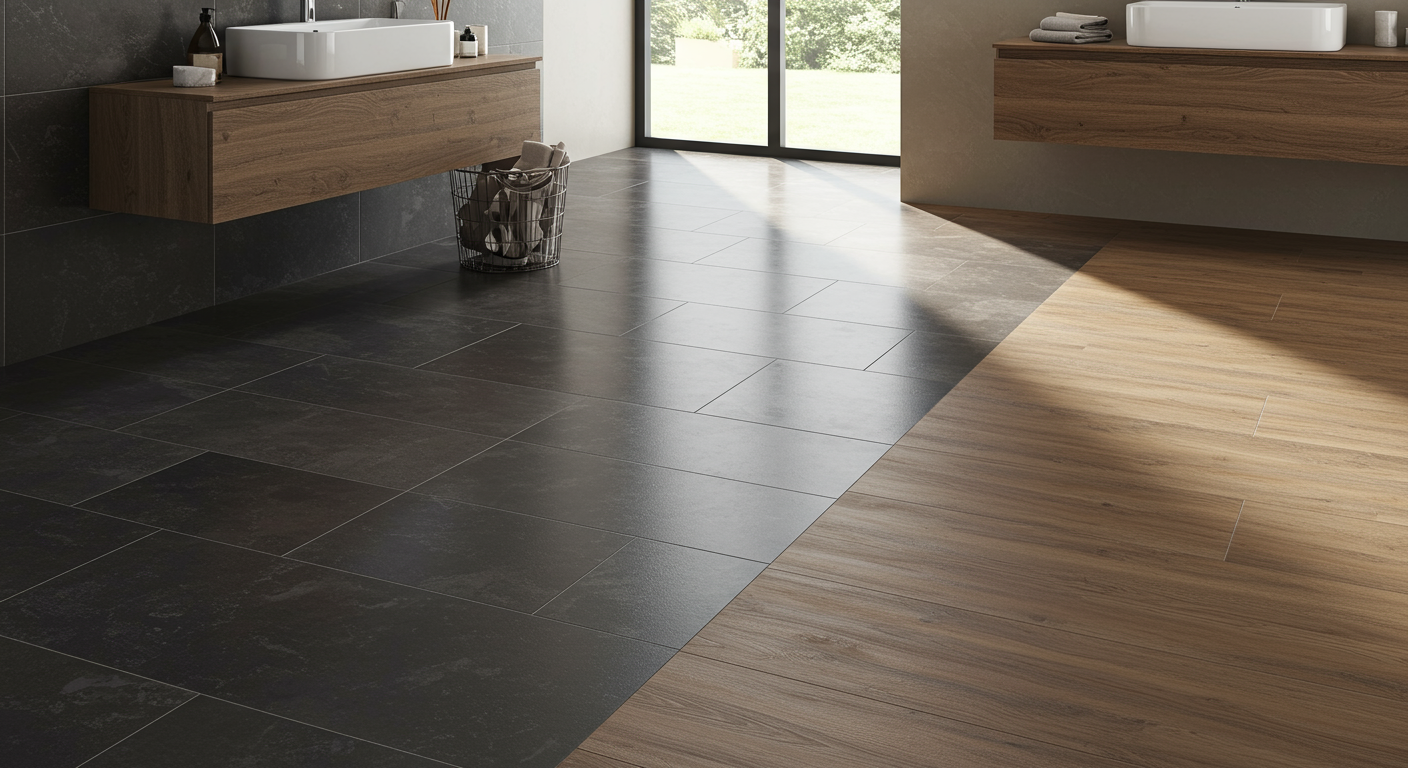
Choosing the right bathroom flooring is one of the most important things you'll do when planning a bathroom remodel or a simple bathroom renovation. Bathrooms are always wet, humid, and steamy, unlike other rooms in your house. To avoid damage, mold growth, and expensive repairs in the future, this one-of-a-kind setting needs bathroom flooring that is waterproof or at least very resistant to moisture. When looking for the best bathroom flooring, you need to think about more than just how it looks. You also need to think about how long it will last and how well it will keep moisture out.
We'll look at the best bathroom floor options in this guide, focusing on their pros and cons when it comes to being water-resistant and good for a wet environment in general. For your next bathroom upgrade, we'll help you pick out flooring that looks good, works well, and lasts a long time.
Understanding Moisture Challenges in Bathrooms
Before we get into the details of different types of bathroom flooring, let's talk about why bathrooms are so hard to work with. Shower splashes, overflowing tubs, toilet leaks, and high humidity levels from hot baths and showers all make it easy for moisture to get in. If you don't take care of it, this moisture can get into the subfloor of your bathroom and cause damage to the structure, rot, and mold. That's why it's important to think about a moisture barrier bathroom and even waterproofing bathroom floor systems before starting any major bathroom construction or renovation project.
Top Bathroom Flooring Options for Excellent Moisture Control
1. Porcelain and Ceramic Tile
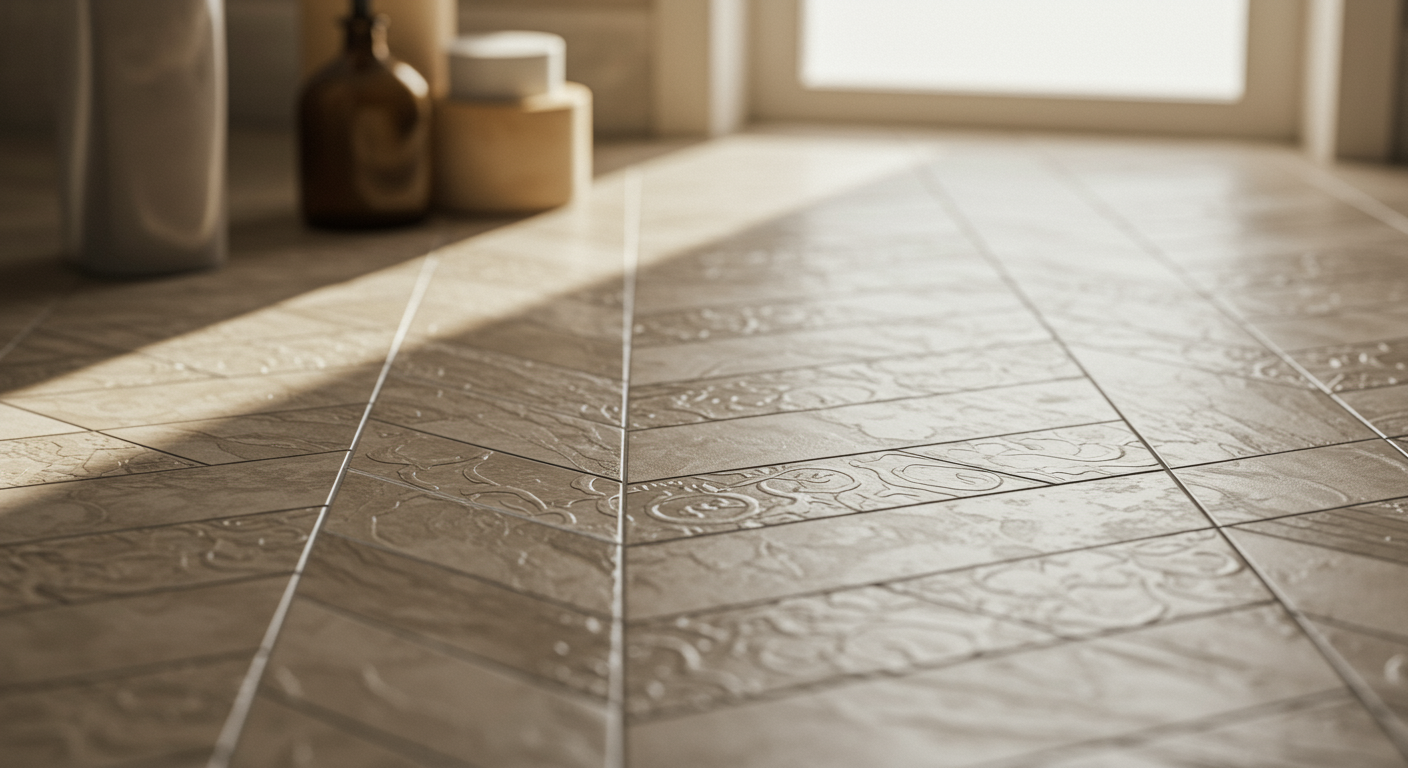
When it comes to waterproof bathroom flooring, tile bathroom flooring, especially porcelain tile bathroom and ceramic tile bathroom, consistently ranks at the top. These materials are incredibly dense and non-porous (especially porcelain), making them virtually impervious to water. This makes them a fantastic choice for any new bathroom floor installation.
Pros: Naturally waterproof bathroom flooring, extremely durable bathroom flooring, wide range of styles and colors, easy to clean, long lasting bathroom floors. Many options are also non slip bathroom flooring, especially if you choose textured bathroom tile. They are also excellent for use with heated bathroom floors or radiant floor heating bathroom systems.
Cons: Grout lines require sealing and can be susceptible to mildew if not maintained. Tiles can be cold underfoot (though easily remedied with radiant heating), and can be hard on dropped items.
2. Luxury Vinyl Plank (LVP) and Vinyl Flooring
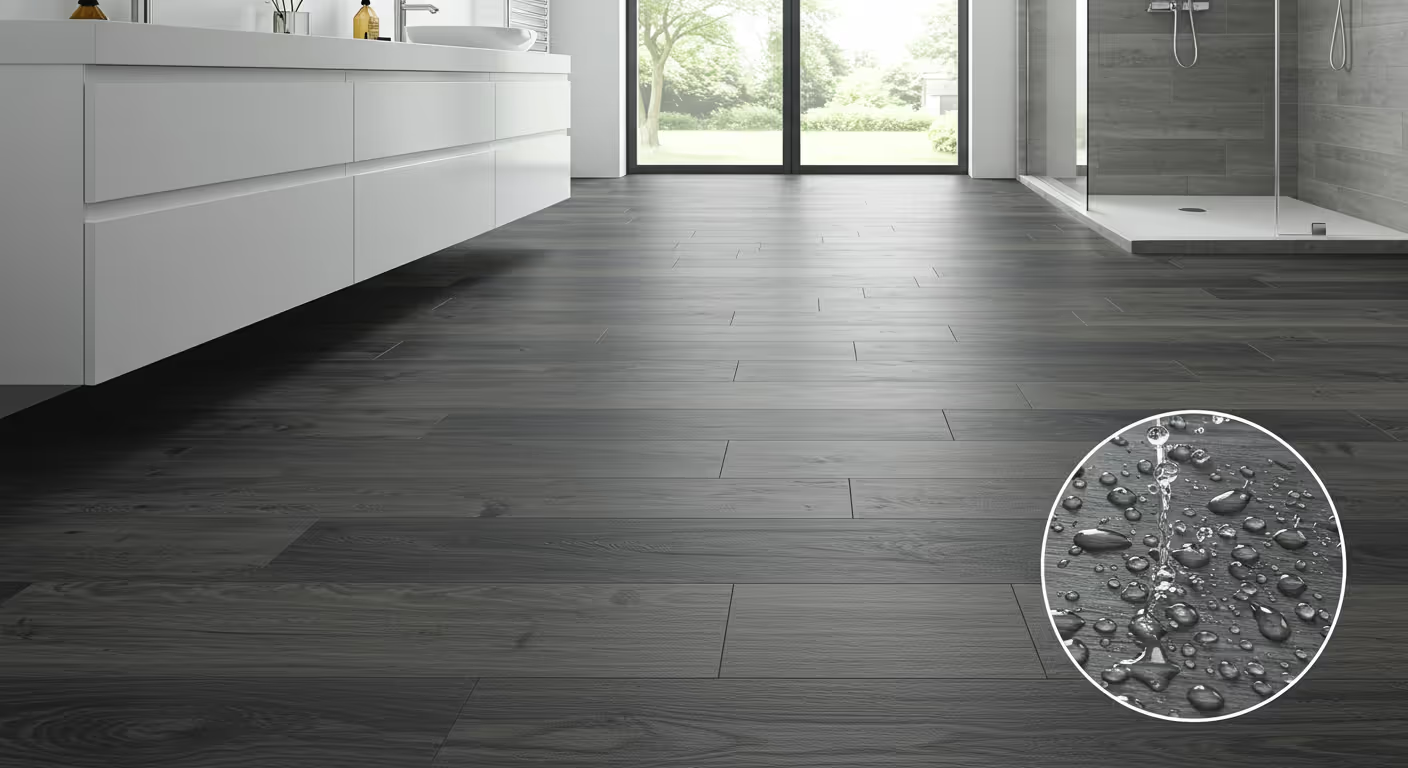
Modern vinyl flooring has come a long way, and luxury vinyl plank bathroom (LVP) and vinyl flooring bathroom are now incredibly popular for their realistic look and impressive water resistant bathroom floors capabilities. Many LVP products are 100% waterproof vinyl flooring, making them an outstanding choice for bathrooms.
Pros: The bathroom floor is very water-resistant (especially 100% waterproof LVP), comfortable to walk on, and easy to install (many have click-lock systems). There are a lot of styles that look like wood or stone, and they are usually not too expensive.
Cons: Quality varies significantly; cheaper options may be less durable. Can be susceptible to dents or scratches from heavy items.
3. Waterproof Laminate Flooring
When it gets wet, traditional laminate flooring is known to swell and warp, which makes it not good for bathrooms. But new manufacturing methods have made laminate bathroom options that are truly waterproof. These special laminates have cores that are water-resistant and locking systems that keep water out.
Pros: Offers the look of real hardwood at a fraction of the cost, comfortable to walk on, scratch-resistant, specifically designed for moisture-prone areas.
Cons: Only *waterproof* varieties are suitable for bathrooms; ensure you choose a product explicitly rated for wet areas. Not as widely available as other waterproof options.
4. Natural Stone Flooring
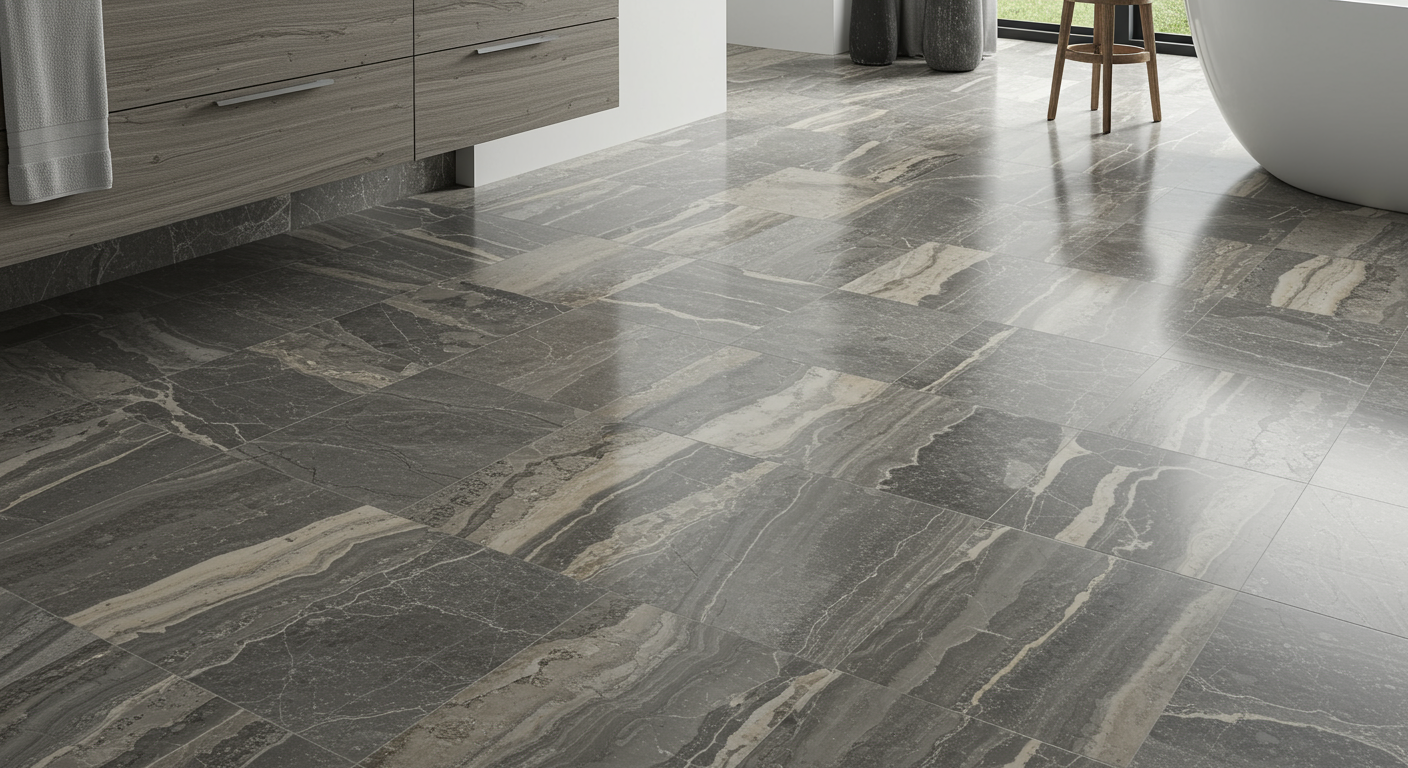
Natural stone bathroom floors, like marble or slate, are the most beautiful and unique types of stone flooring for a truly luxurious feel. Stone is strong, but its porosity is an important factor to think about.
Pros: Stunning aesthetic, extremely durable bathroom flooring, adds significant value to your home, naturally cool to the touch (can also accommodate heated bathroom floors).
Cons: Can be very expensive, requires regular sealing to maintain its water resistance and prevent staining, can be slippery when wet (consider honed or textured finishes for slip resistant bathroom floor), heavy and may require subfloor reinforcement.
Factors to Consider When Choosing Bathroom Flooring
Beyond moisture control, there are several other important factors to weigh during your bathroom flooring comparison:
Durability and Longevity: How long do you expect your replace bathroom floor investment to last? Consider bathroom floor durability and aim for long lasting bathroom floors.
Slip Resistance: Safety is paramount. Look for non slip bathroom flooring options or slip resistant bathroom floor features like textured surfaces, especially for families with children or elderly individuals.
Cost and Budget: Bathroom flooring cost varies widely. Set a realistic budget bathroom floors and explore affordable bathroom flooring options without sacrificing quality.
Installation: Are you planning a DIY bathroom flooring installation, or hiring a professional? Some materials are easier to install bathroom floor than others.
Aesthetics: Your bathroom floor ideas should complement your overall design vision for your bathroom remodeling project.
Maintenance: How much time and effort are you willing to put into cleaning and upkeep?
Conclusion
Choosing the right flooring for your bathroom is an important part of any bathroom remodel or renovation that goes well. Putting moisture control first and choosing waterproof bathroom flooring or materials that are very water-resistant will protect your home from water damage, keep the bathroom clean, and create a beautiful, long-lasting bathroom flooring space that will last for years. To make the best choice for your home, think carefully about the things that were talked about when comparing bathroom flooring, like how long it will last, how much it costs, how slip-resistant it is, and how it looks.
You'll have a beautiful and useful bathroom that you'll love no matter what kind of flooring you choose: tile for its classic reliability, LVP for its versatility, or natural stone for its luxurious feel.
